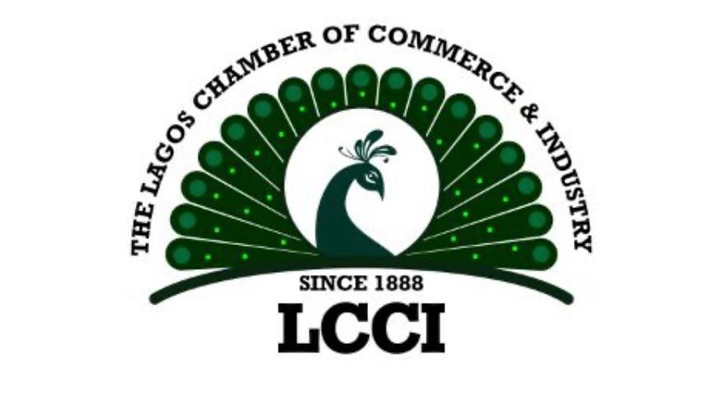Despite Nigeria’s recent easing of headline inflation, the Lagos Chamber of Commerce and Industry (LCCI) has raised serious concerns over rising costs and weak foreign direct investment (FDI), particularly within the critical manufacturing sector. This highlights persistent structural challenges undermining economic growth.
The director general of the LCCI, Dr. Chinyere Almona, while acknowledging the positive trend that “headline inflation has eased for the fourth consecutive month, and capital inflows rose significantly in the first quarter (Q1) of 2025,” cautioned that the details reveal ongoing vulnerabilities. She explained, “Though inflation is moderating annually, food inflation remains elevated at 22.74 per cent year-on-year, with rural communities experiencing sharper monthly increases than urban centres.”
Almona stressed the implications of persistent food price increases: “This persistent rise in food costs underscores the urgent need for targeted interventions in agriculture, rural infrastructure, and logistics efficiency to ease supply-side bottlenecks.” On broader economic challenges, she said, “We need policy interventions that support more productive economic activities, create sufficient supply, make goods available at the right places, create jobs, and let businesses thrive in an enabling business environment.” She added that such interventions must address “energy cost, power supply, logistics, infrastructure deficits, business process bottlenecks around licensing and registration, access to credit, and forex liquidity through non-oil exports.”
Supporting these views, a recent FBNQuest Merchant Bank report titled ‘The State of Nigeria’s Manufacturing Sector’ paints a sobering picture. It states bluntly, “Nigeria’s manufacturing sector has consistently underperformed despite its potential to drive economic diversification, create employment, and stimulate industrial development.” According to the report, this underperformance is rooted in “persistent structural challenges, including unreliable power supply, inadequate infrastructure, limited access to affordable finance, and regulatory bottlenecks.” The problem is compounded by “elevated market interest rates, which have intensified cost pressures and heightened operational uncertainties for manufacturers.”
Turning to capital inflows, Almona revealed a worrying imbalance, noting that Nigeria attracted $5.64 billion in Q1 2025 — a 67 per cent increase year-on-year and 11 per cent quarter-on-quarter. However, “Over 90 per cent of total inflows were in portfolio investments, short-term funds chasing high yields in government securities. By contrast, Foreign Direct Investment plunged to $126.29 million, down 70 per cent from the previous quarter, accounting for just 2.24 per cent of total inflows.”
“This imbalance reveals that investors remain cautious about making long-term commitments to Nigeria’s real sector,” Almona explained. She singled out manufacturing as particularly vulnerable, highlighting a “continued decline in investment into manufacturing, which attracted only $129.92 million in Q1 2025, a 32 per cent drop from the same period in 2024.” She attributed this decline to “persistent challenges around forex liquidity, energy costs, job losses, and operating uncertainties, all of which have driven several multinationals to scale back or exit.”
The FBNQuest report further underscores the impact of diminished consumer purchasing power: “The significant reduction of consumer purchasing power, driven by rising inflationary pressures, has weakened domestic demand for locally produced goods, further exacerbating the overall challenges confronting the manufacturing sector.” Reflecting these issues, manufacturing GDP growth remains subdued, expanding by only 1.69 per cent year-on-year in Q1 2025, with an average growth rate of 1.29 per cent over the past five quarters.
FDI into manufacturing tells a similarly troubled story. The report notes a “sharp decline from $421 million in the previous quarter to just $129.2 million in Q1 2025,” marking the lowest quarterly inflow since Q2 2022. This “steep drop in investment reflects growing investor apprehension amid persistent structural challenges, macroeconomic instability, and policy uncertainty, further undermining the sector’s growth.”
Looking forward, the LCCI and FBNQuest agree that manufacturing holds critical potential. As Almona emphasised, “The easing of headline inflation and the rise in capital inflows are encouraging signals. However, we must not lose sight of Nigerian households grappling with rising costs, and investors hesitate to commit long-term capital.” She warned, “The heavy reliance on short-term portfolio inflows is unsustainable. Our economy urgently needs a deliberate strategy to attract and retain productive investment that drives jobs, industrial growth, and long-term competitiveness.”
The FBNQuest report echoed this call for urgent action: “The manufacturing sector holds strong potential to become a significant driver of Nigeria’s industrialisation agenda. However, realising this potential will require deliberate and sustained efforts to address entrenched structural deficiencies and prevailing macroeconomic pressures.”
Almona concluded with a call for comprehensive reforms: “We need deep structural reforms to create a more efficient oil and gas sector that supports cheaper energy and logistics costs, and a more structured and efficient power sector to increase electricity supply. Strengthening incentives for FDI, including stable tax and regulatory frameworks that reduce perceived risks, is equally crucial. We must also rebuild domestic investor confidence, as local capital commitments often precede foreign inflows.”











